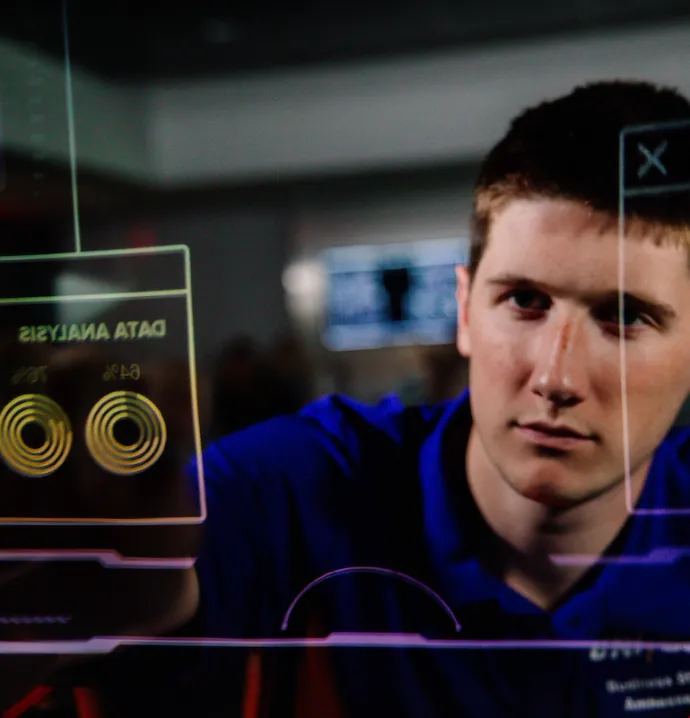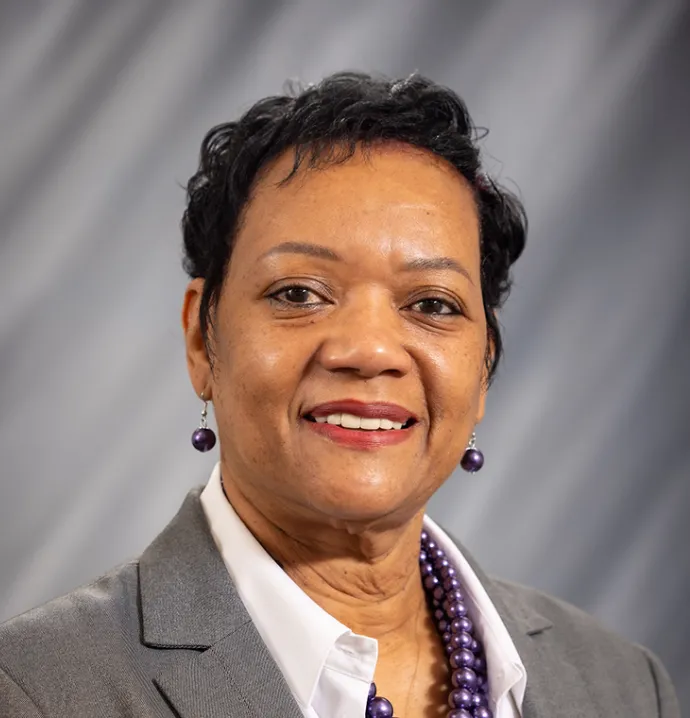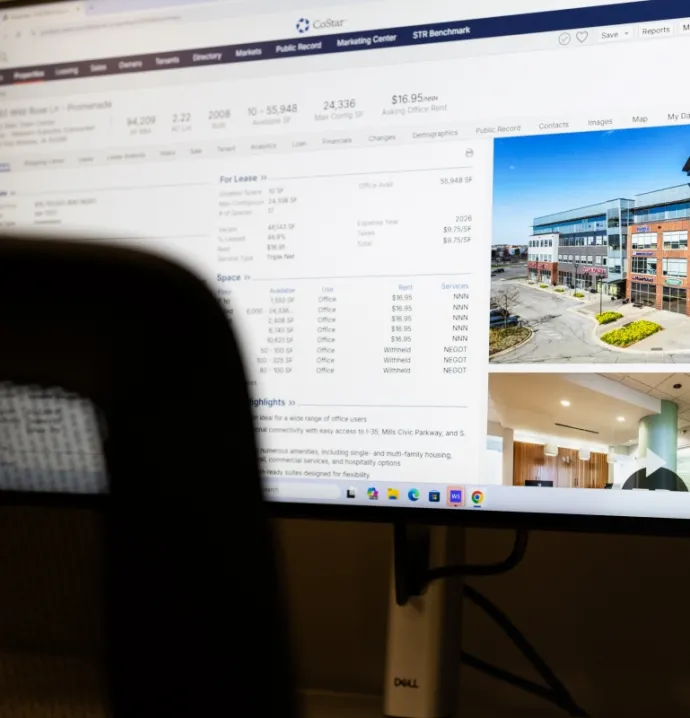UNI Business and Community Services steps up to help Iowa businesses
UNI Business and Community Services steps up to help Iowa businesses
As Iowa businesses grappled with the challenges of COVID-19 lockdowns and social distancing restrictions, the University of Northern Iowa Business and Community Services were there to quickly adapt its programming to provide vital business assistance in all 99 counties for the 21st consecutive year.
Business and Community Services (BCS) programs helped the state determine the best use of state business relief programs through a statewide business impact survey, provided businesses with online resources and webinars to navigate the pandemic, and utilized their 3D-printing capabilities to manufacture personal protective gear and specialized medical equipment.
“It has been a challenging year for Iowa business,” said BCS Executive Director Randy Pilkington. “But BCS programs were able to quickly pivot their client services to address the new challenges faced by Iowa businesses as they weathered this unprecedented storm.”
While the pandemic caused a loss of nearly one-third of the fiscal year for in-person interactions with BCS clients, the total number of clients was only down only slightly thanks to online technology and their flexibility to shift programming quickly. This effort was helped by a record number of students engaged in outreach programs.
In March, as many gatherings were limited, businesses were temporarily closed, and schools moved online, BCS’ Institute for Decision Making (IDM) outlined proactive steps for economic developers across Iowa to assist the business community and anticipate longer-term impacts. As a result, on March 16, the Iowa Economic Development Authority Director Debi Durham reached out to IDM and Strategic Marketing Services to conduct a business impact study aimed to assess the anticipated impact on business employment and revenue for the state. The survey was distributed the next day with the help of many statewide business organizations and non-profit establishments.
Within one week over 14,000 survey responses were collected and the team began analysis. Director Durham used the survey results exclusively to determine what types of business assistance was needed. Reports were prepared for the Governor's Economic Recovery task force, the Empower Rural Iowa task force, regions across the state and the Iowa Council of Foundations. In all, 70 specialized reports were provided and as a result of BCS’s rapid undertaking, other states throughout the nation were able to replicate the surveys for their own economic recovery. Two additional surveys will be conducted with IEDA in the spring.
Other BCS programs made instant pivots as well. The Center for Business Growth and Innovation (CBGI) created a webinar series called “Coping with COVID-19, Creative Solutions for your Business” that was viewed more than 10,000 times. The team covered topics including finding business assistance programs, dealing with remote workers, coping with mental health and moving operations online. As other organizations began providing webinars, CBGI shifted to providing one-on-one assistance and conducting virtual business peer groups.
To assist healthcare providers facing shortages of medical equipment, BCS quickly adapted its 3D-printing capabilities. Its staff and community volunteers assembled 10,000 masks for UnityPoint Health and manufactured needed parts for respirators for public health clinics, long-term care facilities and smaller hospitals.
BCS staff additionally chose to give back to the community and build team unity by volunteering hundreds of hours at the Food Bank of Northeast Iowa.
Business and Community Services (BCS) presented these efforts in their annual economic development report to the Board of Regents in November.




